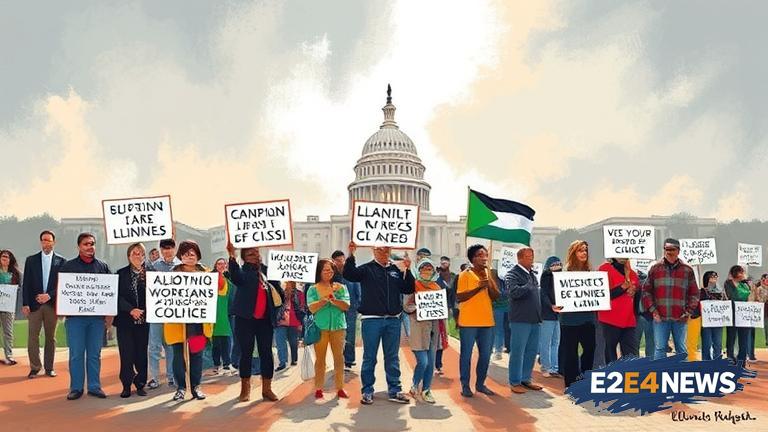A group of health care workers in Illinois are calling on state lawmakers to address the growing humanitarian crisis in Gaza, where civilians are facing severe shortages of food, water, and medical supplies. The crisis has been exacerbated by the ongoing conflict in the region, which has resulted in the deaths of thousands of people and the displacement of many more. The health care workers, who have experience working in conflict zones and with refugee populations, are urging lawmakers to provide emergency funding to support humanitarian efforts in Gaza. They are also calling for an end to the blockade of Gaza, which has been in place for over a decade and has had a devastating impact on the local economy and infrastructure. The workers are concerned about the long-term effects of the crisis on the health and well-being of civilians, particularly children and the elderly. They are also worried about the spread of diseases, such as cholera and typhoid, which are prevalent in areas with poor sanitation and limited access to clean water. The health care workers are working with local organizations and community groups to raise awareness about the crisis and to mobilize support for humanitarian efforts. They are also meeting with lawmakers and other officials to push for policy changes that will help to address the crisis. The workers are calling for a comprehensive approach to addressing the crisis, which includes providing emergency aid, supporting long-term development projects, and working to resolve the underlying conflicts that are driving the crisis. They are also emphasizing the need for a coordinated response to the crisis, which involves governments, NGOs, and community organizations working together to provide support to those in need. The health care workers are concerned about the impact of the crisis on the mental health of civilians, who are experiencing high levels of stress, anxiety, and trauma. They are also worried about the impact on the social fabric of communities, where families are being torn apart and social networks are being disrupted. The workers are calling for increased support for mental health services and social programs that can help to mitigate the effects of the crisis. They are also emphasizing the need for a long-term commitment to supporting the people of Gaza, who will need ongoing assistance to recover from the crisis. The health care workers are working to build a coalition of supporters who can help to amplify their message and push for policy changes. They are also using social media and other online platforms to raise awareness about the crisis and to mobilize support. The workers are concerned about the lack of attention being paid to the crisis by the international community, and are calling for greater awareness and action to address the humanitarian needs of civilians in Gaza. They are also emphasizing the need for a peaceful resolution to the conflict, which is the only way to bring a lasting end to the crisis. The health care workers are committed to continuing their advocacy efforts, and are working to build a movement of supporters who can help to bring about change. They are also calling on other health care workers and professionals to join them in speaking out about the crisis and pushing for action. The workers are emphasizing the need for a humanitarian response to the crisis, which prioritizes the needs of civilians and provides support to those who are most vulnerable. They are also calling for an end to the violence and bloodshed, and for a peaceful resolution to the conflict. The health care workers are working to provide support to local organizations and community groups that are working to address the crisis, and are calling for increased funding and resources to support these efforts. They are also emphasizing the need for a coordinated and comprehensive approach to addressing the crisis, which involves governments, NGOs, and community organizations working together to provide support to those in need.
